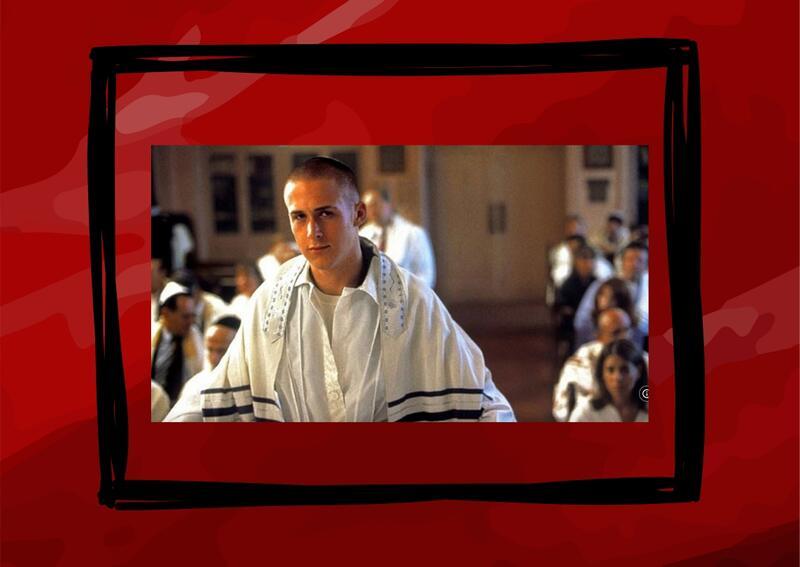Wrestling with God and Neo-Nazis
My freshman year of high school I had a Chumash (Hebrew Bible) teacher who spent every class trying to get us to hold all his beliefs. No matter how niche or upsetting, he heavily implied that if we didn’t, we were bad Jews. On our first day of class, in August of 2020, he told us there was no point in wearing masks because it was 100 percent up to God who got COVID and who didn’t. He also told us that gay people are going to hell, that there’s no such thing as a Jewish scientist because science is directly in opposition to Judaism, and that any Jew that doesn’t believe in God the exact way he deemed correct is damned. I found myself crying every time I reviewed the class materials because, although I didn’t believe it, all of it was saying that I was a horrible Jew, a horrible person, and could never possibly have a place within my community. Any negative thoughts I had about Judaism before that class were amplified, and I became resentful of Jewish authorities and the religion itself.
When I saw The Believer, I felt an eerie connection to the main character. The 2001 film, directed by Henry Bean, tells the story of a Jewish neo-Nazi, based on the true story of Jewish KKK member Dan Burros. Throughout the film, we see glimpses of a moment from main character Danny’s childhood that was influential in making him the man he is. In it, a classroom full of visibly Orthodox preteen boys are being taught about Akeidat Yitzchak, or the Binding of Isaac. His rebbe and classmates see this story as proof of the incredible strength of Avraham’s faith. Young Danny, however, interprets this story as a traumatic moment, not just for Avraham, who God almost forced to sacrifice his son, but for the whole Jewish people. To him, this moment signifies God asserting Godself as “the power-drunk madman that He is,” as he tells the class. During this scene, a classmate tells Danny that “fear of the Lord is the beginning of wisdom,” but to Danny, fear is always a weakness. He shouts back that “[a]ll the Jews are good at is being afraid and being sacrificed.” A fear of God equals a fear of everything equals being the victim.
From this moment on Danny is unable to shake the idea that Jews are victims—not because of how hated Jews are, but because Jews are not able to fight back.
At the beginning of the movie, Danny follows a man wearing a kippah off the train to attack him. He shoves him to the ground and kicks him while yelling antisemitic slurs. “Think it’s a fucking test? You think God’s gonna provide a fucking ram instead of you?” Right before Avraham was going to kill Isaac, God stopped him and told him to sacrifice a nearby ram instead. Danny ridicules the idea of anyone looking to God to save them instead of saving themselves. This is the first glimpse of Danny’s cruelty, and it perfectly encapsulates his motivations. He thinks Jews will never fight back against their oppressor, so the only way he can outrun the weakness inherent to him because of his Jewishness is if he becomes the oppressor.
This line of thinking also shines when Danny and his neo-Nazi buddies are court-ordered to attend sensitivity training, where they listen to Holocaust survivors tell their stories. After a man tells the story of watching a Nazi kill his young son in front of him, Danny blames the man for his lack of action. When Danny imagines the scene, he envisions himself not as the Jewish victim, but as the Nazi perpetrating the crime. Once again, we see him trying to gain agency against his perceived Jewish weakness.
Over and over again the movie flashes back to the scene of young Danny learning about the Binding of Isaac. It’s so clear that this moment and Danny’s reaction were the start of his turning to Nazism. What’s frightening about this movie is that struggling with the idea of God as all-powerful is far from a unique experience. Hearing your teacher and classmates describe God’s omnipotence and exertion of control over the Jewish people with awe is something I experience on the regular in my Jewish day school. And often, I have a negative reaction to it. I, without a doubt, have thought, and likely even said, the things Danny yells in that scene—to my peers, my teachers, my family members. The thoughts he expresses, his gripes with God, are things I have spent so long feeling. A part of me felt seen by this movie. I saw myself in Danny.
It’s a horrifying experience, finding yourself relating so much to a character who spends the whole movie talking about how much he wants to kill Jews. While I would never act out violently, I have felt the sting of being excluded like he did.
But the defining aspect of what made Danny a Nazi is his idea of weakness. For him, belief in an all-powerful God means weakness. And for this perceived weakness, Danny must lash out to destroy every drop of belief within himself.
This violence is where Danny and I diverge. I don’t believe in God, and I don’t think I ever have. I’ve felt the resentment Danny felt, and still do sometimes. Danny’s resentment was egged on by the volatile responses he received from those around him, then left to fester as he was ostracized by the community for his nonconforming thoughts. While I have been on the receiving end of some cutting statements in response to things I’ve said about God’s existence and omnipotence, for the most part I have been lucky enough to be spared from the ostracization that can come with theological difficulties. Being yelled at by his teacher and forced out of the classroom created an anger in him not just for Jewish thought, but for Jewish people. As an adult, all Danny keeps from his Jewish upbringing is sparse remnants of practice and the deeply ingrained anger and resentment.
My main takeaway from this movie is that the way religion is taught in Orthodox Jewish communities needs to change. The overemphasis of God’s ultimate power creates such a large chasm between those who believe and those who don’t. Danny’s view of all believers as weak is an extreme, but I’ve often caught myself thinking that anyone who “actually believes all of this” is stupid, even though the majority of the smartest people I know believe in God. And, sure, most teachers are not throwing their students with controversial ideas out of class, but that doesn’t mean students can’t tell when their teacher resents them for their beliefs.
While I was able to bounce back after that horrible freshman year Chumash class experience, there’s another, just-as-likely scenario where I don’t, where that’s it for my relationship to Judaism and the Jewish community. And I’m sure my experience was not unique. Jewish educators need to move away from teaching everything in absolutes and attributing moral value to different beliefs one might have, especially when students are looking to engage. It’s a teacher’s job to help students grow, something that is stymied by the idea that beliefs are either right or wrong. Educators have much more power than they know. All it takes is one bad teacher to change the entire trajectory of a student’s life, and educational institutions must do more to make sure those lives are being changed for the better.
This piece was written as part of JWA’s Rising Voices Fellowship.







